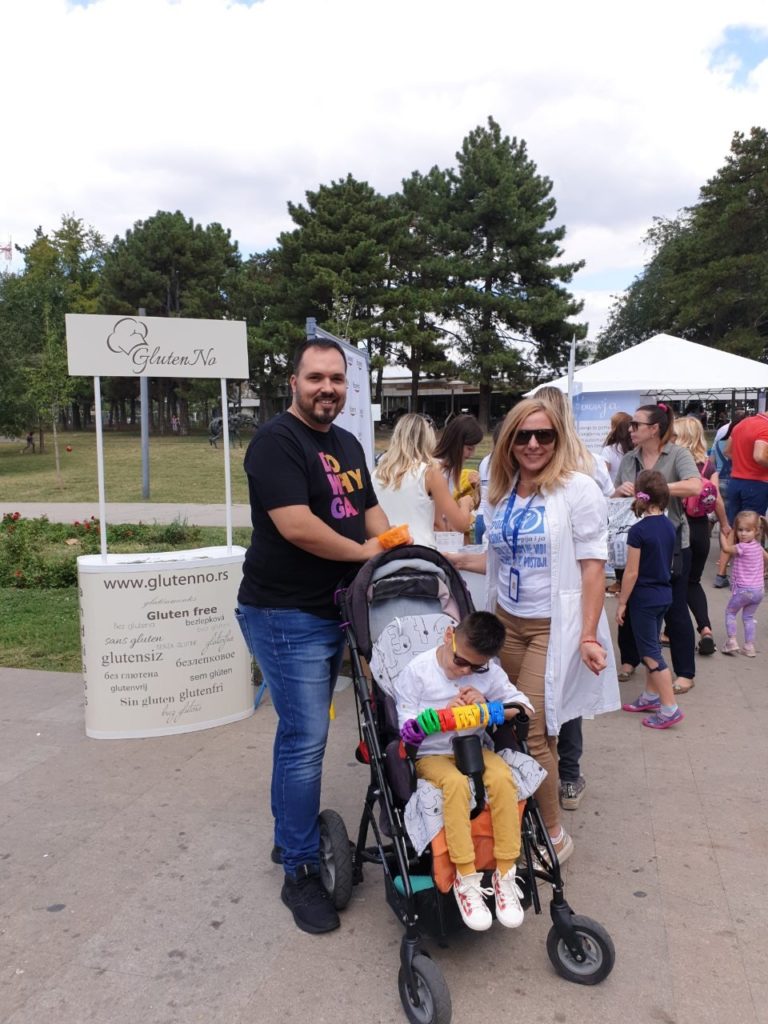
September 14 marks the 2nd European Atopic Eczema Awareness Day aimed to raise awareness and understanding of the disease and its impact on the people living with it. For the first time in Serbia, World atopic eczema day was held, in the city central park in Belgrade, organized by National association Allergy and me.
Host of the meeting was our colleague Snežana Šundić Vardić who leads the association.
During the event, free dermatologist examinations, educational and creative workshops for kids were conducted. This is a good example of developing an awareness of the health problems that are marginalized.
Atopic Eczema is a demanding disease and much tougher on patients than people understand. Intense and persistent itching is one of its most debilitating symptoms, leading to long-lasting pain. It nearly always restricts quality of life, impacts mental health and leads to the development of other diseases.
Each day, people living with atopic eczema experience how the disease impacts their lives beyond their skin. The new EFA Atopical Lives online photo exhibition introduces people living with atopic eczema and shows how the disease influences their daily activities and quality of life: eczema patients need to constantly adapt their daily lives to avoid additional skin irritation. They carefully choose ordinary activities such as cooking, playing sports, enjoying leisure-time or hobbies because their atopic skin requires preparation not to have symptoms worsen. Common consumer goods such as cosmetic and hygiene products, bedding or clothes are also part of their prevention strategies, leading to considerable extra-spending. The cost to get the care they need is too high: European severe atopic eczema patients spend on average 927, 12 € a year.
Atopic eczema often develops in childhood, but it can also appear in adulthood. It almost never comes alone but instead is linked to other atopic diseases: almost half of all eczema patients live with allergy to pollen, around a third have allergies to either house dust mites, animals or certain foods, and many life with asthma. The majority of mild atopic eczema patients can have their symptoms reduced thanks to moisturisers or corticosteroids. However, their recurring symptom cycles are not treated.


